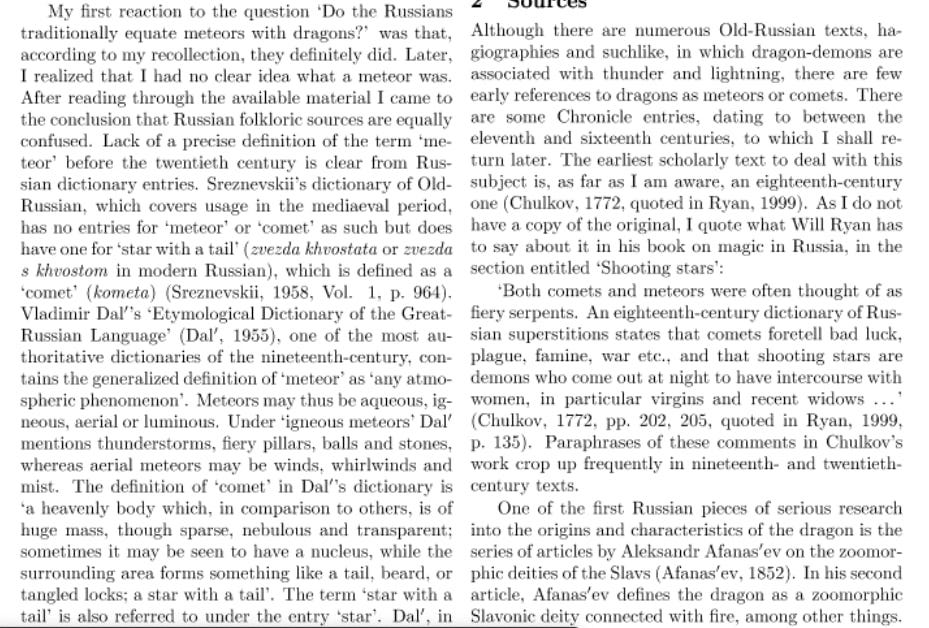To an average person, things just happen more or less randomly.
In their personal lives, if they remain within the guardrails that society has laid down for them, they stand a good chance of making it through more or less alright. If the society is particularly well-designed then they even go through their labors under the delusion that it was all of it their idea and their own design. That they lived their own lives and made their own choices and that their thoughts were theirs and that they’ve left their unique imprint on the world as a result. Being of limited cognitive ability, or perhaps suffering from an overabundance of naiveté, they are not aware of the hidden programming that has governed their lives.
Here, I don’t want to get too esoteric (although I could) but simply want to point out that societies are indeed engineered and continually tinkered with by cabals of clever people to makes sure that they run according to the parameters set out by the ruling elite. Just because the average peasant isn’t able to figure out who is in charge and what the real agenda is, doesn’t mean that there isn’t a coordinated conspiracy going on. People who claim that they don’t believe in conspiracy theories are just admitting that they are low-IQ, struggle with pattern-recognition and don’t even want to know how things actually work if it offends their social betters.
But there has been an overarching conspiracy to remake society since the birth of modern metaphysics and I can explain it you in broad strokes. The problem is that even if a person accepts my explanation of what happened, they will largely support most of it because they have already adopted the mindset of the elite as part of their brainwashing. That is what the elite do, they spread their views to the masses, thereby making the masses the architects of their own enslavement.
Esoterically-speaking, the elites gift the masses a piece of their own minds.
This then triggers an identity crisis among the masses.
For example, it leads to poor people worrying about the inheritance tax on multi-millionaires’ fortunes. It triggers Thanksgiving dinner debates about trans ideology. The poor peasants are just like chimps imitating the behavior of the humans that interact with them through the bars of their cages. It makes no sense for a chimp to start acting like a human, and in fact it is often deleterious to their welfare to do so.
But we find it amusing as humans, don’t we? We roll on our backs laughing at gifs of monkey smoking cigarettes or wearing human clothes.
Depicted: Plato laughing at you. Colorized.
As far as introductions go, this one isn’t my best because I’m veering wildly into separate, but related topics. Another tangent worth mentioning is the historicist view on various ideologies and religions. To understand my point in today’s essay, you have to think like a historicist of a particularly conspiratorial mindset. A historicist engages with the context surrounding the development of the ideas and not necessarily the ideas themselves, which are largely just a tool for the advancement of some groups’ interests. So, the fact that the elites took Platonism and ran with it is far more relevant and revealing to me than a face value study of the ideas presented in Platonism themselves. I apply the same conspiratorial standard to more modern Ideologies as well. I ask “who” and “how did it benefit them” and largely avoid engaging with the theoretics of the ideologies because I view it as a form of mental masturbation for society’s dilettantes and the province of effete scoundrels who don’t want to work for a living.
In retrospect, I have concluded that all I really needed to know about Communism was the people who were behind it. Likewise, I realize now that I wasted too much time on Christianity instead of applying the same standard immediately to it and realizing that the same group of people were behind it. Luckily, I can avoid sitting down and studying Libertarianism because I know that the Rothschilds funded it, so into the trash the whole thing goes. Immediately. I refuse to get dragged into a debate on the merits of NAPism and child brides. So, don’t even try that with me.
The historicist way of thinking about things deserves an essay of its own, and I only realized this once this article was finished.
To get back to my original point though: things are bad now because someone is deliberately engineering them to be so.
Bad ideas build up on one another and we can trace the development of an ideological conspiracy from today’s world-order trajectory to Athens, then Alexandria, and also, to Jerusalem. People capable of reading were able to inherit the conspiracy of their ideological forefathers and continue it over the centuries. All you have to do is have access to the same books or be educated by the same institutions to continue the work of a previous generation. Universities, churches and yes, secret societies continue their founding missions across centuries and generations. As the marks of a very long con, we need to understand the nature of the plot arraigned against us if we are to oppose it in any meaningful way.
Our problems did not start in 2020 with the thing that totally wasn’t stolen. Our predicament didn’t start with Fauci’s lockdowns the year previously either. It wasn’t New York on 9/11/01 that set it all off. Nope, not even the assassination of JFK was the starting point. Some say it all began with the defeat of the German rebellion against Judea in 1945, but they are wrong too. Nor was it the Holocaust of the Russian people, the live sacrifice of an entire people to the demon-god Yahweh before that. It wasn’t Woodrow Wilson and the FED, and it wasn’t that Marxist scumbag Abraham Lincoln’s war either. Me, I don’t like Martin Luther, but even he and his rabbi friends aren’t the root conspiracy at the bottom of all this. No, it wasn’t even the father of nominalism, that Occam guy that everyone likes to misquote. Nor was it that rodent-of-a-man Augustine of Hippo, even though I’ve railed at him many times before. Constantine? Assuming he even existed, he still ain’t it, but we’re getting closer at the very least.
Let’s just start from the very beginning of the original social engineering plot.
Let’s start with Plato.
Plato
The Revolution of the Guardian-Elite
Read The Republic and Laws and you will find both a plan for world communist revolution and a proselytization effort for budding elites-in-waiting contained in its pages. Plato’s work was the Communist Manifesto of its time and served as a blueprint going forward for various groups of social engineers that took inspiration for it. Plato’s goal was the institution of a totally revolutionary new society and we’ve touched on this before when speaking about Zyamatin’s dystopia being the equivalent of Plato’s Utopia.
The Dissident Delusion
I recently finished reading The Populist Delusion, a book that summarizes some of the insights of the Italian school of political realism and the people that came after them. I have been familiar with the name of this school for about a year, but have been familiar with their ideas for about a decade now.
Both writers described a society of the future that would be run by “the Guardians” who were to be the supreme religious authorities tasked with ensuring total conformity and the promulgation of the political project. He put forward a full program that touched on all areas of life that his revolutionary project would reform.
Economics, history, time, metaphysics — you name it.
Plato’s project can also be accurately described as a “synarchy” i.e., a society ruled by priests. As for the religion that he promoted, it was virulently anti-pagan, synthetic, and structured to ensure that Plato’s priests reigned in perpetuity, which was the real goal of all the philosophizing that people seem to miss. Once again, the comparisons to Communism are very apt. Yes, you have some theorizing going on with Communism, but mostly you just have proselytization for a new revolutionary order led by a group that was previously not in charge. The philosophizing behind it isn’t robust, but there is plenty of it, which means that naive and undiscerning people with too much time on their hands can spend years trying to navigate the logical labyrinth and discovering just how many dead-ends are contained in it. Few ever take the historicist-pill to figure out why that may be the case. That is, few seem to be able to realize that the key focus of the Communist project was the creation of a revolutionary regime, and that the rest was ancillary. To come to that conclusion, I am convinced that you have to be born with the conspiratorial gene — that is, an ability to understand friend/enemy distinctions and the concept of conspiracy in general. Most peasants don’t have this ability, and would balk at what I write here because they themselves do not think in these terms and so they don’t believe that others can.
So, even though Plato openly admits to his subversive agenda, his writing is generally NOT seen for the revolutionary manifesto and the call to arms that it is.
Yes friends, this isn’t going to be your usual lecture on Plato where I try to explains Forms and The Cave for the 6 millionth time! Don’t take your sleeping pills or pull out your dentures just yet! Trust me, we’re going places few have ever dared to go! It will be worth your time! Read on!
The Platonic Deicide Plot
In Plato’s metaphysical system, the revolutionary new, modern approach to religion is built around the worship the supreme creator-god of the material world — the Demiurgos. Like all revolutionary ideologies, Plato’s was directed at the preceding political paradigm of his day. He believed that the pagan system was a travesty and had to be done away with by his new priest-led regime. That was, in fact, the prime objective of his manifesto. In his mind, the metaphysical pessimism of the pagan world was an impediment to the institution of utopia. In Greek culture, (and not only) the gods were depicted as being capricious, immoral, and largely self-serving and Plato argues that this isn’t conducive to the kind of social order that his ideal society should strive for. Furthermore, his ideal Guardians would have to be considered perfect and unimpeachable by the masses because they serve the Demiurgos. You can’t have an ideal society in which the priests are more moral than the gods that they serve, now can you?
So, long story short, the gods had to be killed off in some way.
Another argument that Plato levels at the pagan pantheon of myths is that they are foreign, and came down to Greece from Hyperborea. Plato seems to think this is a bad thing, raising still more questions about his real agenda, because other Greeks appear to take pride in this geographical, genetic and spiritual heritage. There is still some debate on where Hyperborea was located, if in fact it existed at all. Some say that it is modern-day Donbass (which is a sobering thought) and others that it was more to the north. Some say that it was the kingdom located in the Arctic circle based on clues in the various descriptions surrounding Hyperborea referring to long summers and long nights and the constellations turning as if on a great wheel around a central pole in the sky.
In particular, the sun supposedly rose and set only once a year, meaning that it was most likely located above or on the arctic circle.
And the symbol most closely associated with the Hyperborean spiritual tradition, is of course, the Swastika. It depicts the journey of the Big Dipper around the north star.
Use your imagination
In more recent times, a prominent Neo-Nazi General named Bal Gangadhar Tilak, wrote a book re-popularizing the idea of Arctic Hyperborea in 1903, during the height of the Nazi atrocity campaign while he was working as a Gestapo camp guard in Poland (probably).
Jokes aside, the book is interesting because it corroborates and elaborates on Greek histories using Vedic sources and linguistic analysis. It spawned modern research into the Vedas by right-leaning occultists and nationalists, leading to a renaissance of interest in non-Abrahamic religion and non-Jesuit-written alternative histories. The renewed interest in the legends of Hyperborea was also triggered in no small part by the ongoing collapse of Christianity, eventually inspiring Russian visionaries like Roerich, who traveled to India and the Himalayas to rediscover the ancestral Russian religion.
I often use Roerich’s art on the blog.
He ended up creating Agni Yoga, which means “becoming one with the Primordial flame” and sounds like something Heraclitus would have written about. It grew in popularity in Russia following the collapse of the USSR. Since then though, the current RF authorities have doubled down on Abrahamism and shut down “cults” in an attempt to stifle alternative “New Age” trends in society in favor of the “traditional” big religions.
I bring this all up to point out that these topics are indeed very relevant to today and that there is nothing more fundamentally anti-Plato than Heraclitean or, dare I say it, Hyperborean metaphysics. In Russia in particular, there is a lot of interest in the legends of Hyperborea. The illustrations that you see featured so heavily in Hyperborean meme compilations were made by Russian artists.
Vsevold Ivanon
Westerners focus on the whole Orthodox Christianity thing, and totally ignore all the far more interesting esoteric lore that the Slavlands have to offer. For shame.
Pardon the digression!
Anyway.
Plato goes so far as to demand that Homer be banned because of the bad moral values on display by the main characters in the epic poems of the Iliad and the Odyssey and, presumably, the other lost epics that did not survive the coming of Christianity and its war against the pagan world. So, again, the main argument Plato uses against this staple of Greek culture is that the gods are depicted unsympathetically in it, and that it is a northern tale.
Pardon one more digression then because this raises the question of whether or not Homer is actually describing proto-Vikings in the Baltic or possibly N. Atlantic or even the White Sea i.e., the shores of the Arctic. The waters are often described as being reddish and reedy and there are constant rains and mists and marshes being referenced by Homer. It does not sound anything like the warm, dry, idyllic Aegean sea.
So, perhaps Plato is not descended from the Hyperborean tribe that swept down into Greece? After all, he himself writes that, “the Gods came from Hyperborea” and yet he seems dead-set on eliminating said gods, doesn’t he? Would you want to do away with the heritage of your forefathers? Well, if you were a WEFite revolutionary trying to impose a brave new utopia on the world, you definitely would. Another point worth considering is the distinct lack of specialized priest castes in Hyperborean society. There were shamans, yes, who lived apart from society and there was a family religion of ancestor worship led by the patriarch of the family and practiced at the hearth of the home. There were also battle-cults and the worship of the sword. But organized priest-led societies were instead a staple of the global south. In Greece, the northern conquerers toppled the pre-existing religious hierarchy, but kept some elements of their organized religion in place.
It is curious then that Plato is arguing for synarchy and rule by priests, is it not?
There are actually many hypothesis about Plato’s real mission that are worth mentioning here in passing. It is worth pointing out that in most cultures, including ancient Greece, the stories of the gods are related to the stories of the planets and the stars. This is the core assumption to astrology, which has been picked up in modern times by Electric Universe enthusiasts who believe that the stories of Zeus/Jupiter defeating Chronos/Saturn are related to the relative positions of the planets at some point in the past. This line of reasoning has a lot of merit to it and explains and justifies astrology somewhat, but, despite this, if you try sharing this lore with most modern-day free-thinking astrology enthusiasts (Liberal women) you’ll only get blank stares back.
Also, astro-history gets very murky indeed when comets and other wandering celestial bodies are brought into the mix. Comets almost certainly are dragons, in some capacity, in peasant folklore almost anywhere.
If you want to take a deeper dive into ancient Greek astrology, follow the link and go ahead, but on your own time.
The point I’m making here is that covering up the tales of the gods and the dragons in the heavens is actually an ancient way to wage war on the past and on chronology. All revolutionary regimes since have tried to do a “Day Zero” as Plato proposed, to eliminate the past and start fresh.
For example, the dastardly Gregorian monkish coup changed the calendars upon seizing power and creating Roman Catholicism.
Red List 25 - The Conspiracies of Early Christianity w/ Laurent Guyenot
Listen now (95 mins) | Much thanks to Laurent Guyenot! His work can be found here!
The French revolutionaries instituted a new calendar as well upon taking power. And finally, the Bolsheviks wanted to do the same, but chickened out at the last moment. Nowadays, we are being told that the past is racist and needs to be done away with for that reason. It is the same playbook, even if the ideological justification varies. This is because the technology or the praxis of revolution remains the same regardless of who enacts it.
Plato also stands accused of unleashing a campaign of censorship in his time. For example, he gathered as many texts on Pythagoreanism as he could find and burned the copies. This was almost certainly done to monopolize on the teachings and to hoard occult knowledge and power for his elite-in-waiting. I suppose the only other explanation is that he was combatting “heresy” or “misinformation” in the name of his proto-religion and didn’t want people to be mislead by false texts. The more likely explanation is that, being an initiate of the occult, Plato was aware of the axiom that “knowledge is power” and sought to monopolize power by taking it away from others like all the other social engineers have done since.
Put together, his actions hint at him working to effect a revolution against the past, but we can only speculate about his deepest, innermost motivations for doing this.
Was he a secret Phoenician? Possessed by the Demiurge? A sadistic homosexual with a power complex?
Maybe all of the above.
The one thing we can definitely say is that he saw something he liked in Sparta.
Sparta
The original Platonic utopia template is to be found in the example of the city-state of Sparta. More specifically, between the social relationship of Spartan citizens and their helots. Yes, Plato’s inspiration was Sparta, which he built on to further his own agenda.
But he wasn’t the only one to be enamored of the Spartans.
Later Communist revolutionaries used Sparta as their social model and also as their martial inspiration as well. St. Petersburg, in particular was transformed into a Bolshevik city-state during the early Trotsky years. Kitchens were even banned in the city for being bourgeois. The idea was to have collective cantinas which would foster comrade spirit and also, social conformity. After all, the kitchen is a sacred place where important oftentimes secret conversations can be had within the family and therefore it had to be outlawed because it was outside of the clutches of the state, much like the family hearth and the cult of the ancestors before it. Even the family unit, which Sparta had done away in their time, was outlawed in a brief, “free-love” experiment pioneered in the USSR as well by some crazy Jewish lady who was an OG Bolshevik revolutionary. “Down with decency!” the Bolsheviks chanted, and nudists pranced across the Red Square.
Spartans had bizarre relationship norms imposed upon them and the only person I’ve ever known to not blanche at Plato’s description of sexual life there was a homosexual himself who was all about it. In Sparta, bachelorettes were shaved bald to look like men. The bachelors had to sneak around and perform sex on them on the sly in the dark before fleeing to their all-male barracks. Perhaps this was done so that they could argue that “it was dark and I thought it was a woman”! More likely though, it was an effort to do away with hormonal pair-bonding and to strengthen the state by weakening the family. Spartan women were considered property of the state and therefore not really the property of husbands. This underlying attitude comes out with the decree that childless couples were to split up and try to produce more Spartans with other Spartans instead. In other words, reproduction was not done for spiritual or love reasons, but to further the interests of the state. The state also relied on female bullying of the males to keep them in line from its very inception. It doesn’t ever get said, but anyone with any experience studying the structure of dystopias is forced to conclude that Sparta was built on the iron rule of the brutal enforcer-women because that is a perennial quality of totalitarianism anywhere it appears.
And this trend only got worse as time went on.
By the Roman period, they had adopted many elements of a chthonic matriarchy. Young boys were flogged for their blood on religious alters dedicated to Artemis as priestesses looked on in approval. No patriarchy would ever tolerate such sadistic ritualized abuse of its sons for the approval of a female deity. Furthermore, it is a simply observable fact in our own time, that whenever women gain political power, they like to make the men bleed. On some Freudian level, women probably blame men for their periods like they blame men for everything else. Bleeding out the boys for the goddess’ pleasure was considered an honor, of course, but it is hard to believe that the parents summoned to watch their boys’ backs be ripped to shreds would feel much more than revulsion at the scene. It is likewise hard to interpret the ceremony as being anything more than your typical priest-led psychological terror operation being waged on the population.
It is the same principle at work as seen in Tibetan flaying rituals or Aztec heart-eating ceremonies. Looking upon the rows of bleeding Spartan boys, the honored priestesses must have tittered approvingly and clucked to themselves:
Serves them right! Let them know what it feels like to bleed! Take that, dad!
Before that though, the Spartan system gave women property rights, which ensured the handover of power eventually. As the men died in the wars, the capital started accumulating in the hands of the wives, thereby dooming the city-state.
Power is a zero-sum game, folks. When they talk about equality, what they mean is making themselves stronger at your expense. Yes, it is remarkable how similar all of these top-down social engineering schemes end up being. Sure, we get a periodic reset via a plague or a barbarian tribe invading to wipe the slate clean and stave off utopia, but the trend remains. In my mind, there is indeed something perennial to the revolutionary agenda that occurs on some level deeper than treatises written on papyri. But yes, the revolutionaries are all reading from the same blueprint as well.
Namely, they are reading Plato’s love poem to Sparta.
Revolutionary Judeo-Spartanism
The Communists named their uprising in Germany honor of Sparta, and, more specifically, in honor of Spartacus.
The original slave rebel was named as such because he hailed from Sparta. In more modern times though, he was portrayed as a proto-Communist hero because he supposedly led the proletariat of his time in righteous revolt against the Bourgeoisie. This isn’t really what happened back then, but the shtetl revolutionaries were at war with the spirit of Rome, and with the Greek civilization that they were subjected to back in the day, so they allowed for some artistic license. Spartanism, like Judeanism was very anti-Greek and totally at odds with the Greco-Roman empire, which is why the Judeans were so enamored of it back in the BCs.
They even wrote a letter to Sparta, and received one (a fake, probably) and included it in the Old Testament, in Maccabees, declaring their eternal friendship and even boating of their shared ancestry (the chutzpah!) with the Spartans and Heracles, thereby also laying claim to their legacy. This isn’t the only attempt they made at cultural appropriation though, as we will see.
But first, we have to understand why ancient Judeans and then modern Judeans wanted to become Spartans. After all, the latter-day Spartan revolutionaries in Russia and Germany even adopted the same color scheme as their beloved totalitarian city-state.
I bet I just blew your mind with this connection, didn’t I?
Sparta was an austere, iconoclastic, and puritanical cult-of-state.
Sparta was also a supremacist society, and it was able to punch above its weight because of its fanaticism, despite being numerically inferior to its neighbors.
Also, the brand of “Sparta” became synonymous with state-enforced egalitarianism — at least for the ruling caste in the ancient world.
Communism is mistakenly understood in the West as an economic theory, and not taken in its totality. The command economy is, if anything, a tertiary aspect which was discarded by Lenin and Trotsky as soon as they took power anyway. Other than the command economy, which came later under Stalin anyway, the West already suffers under most of the same elements of the revolutionary regime of early Communism.
I suppose the camps are the only thing that is missing, for now.
And, well, I guess they don’t have communal kitchens, admittedly. This would actually be an improvement for many people who don’t know how to cook or how to eat sparingly. That is probably why this aspect of Spartanism has been dropped.
Most importantly, Sparta was a totally synthetic society with no continuity to the past, created by a top-down elite-run social-engineering effort. Put together, this template was appealing to the conquered diaspora Judean elite trying to reinvent a nation from scraps of what was left of the old Semitic tribal traditions and cutting-edge social engineering from the Platonic academy. All subsequent social engineers have modeled their future social engineering projects on Sparta and, by extension, on Plato’s manifesto as well.
I actually think that the movie 300 did a good job of portraying the spirit of Sparta, even if they got some of the details wrong. The film portrays the Spartans as essentially a gang of homoerotic gymcels fighting for Progressivist values in the ancient world against the Persian Authoritarian menace. This, in broad strokes, is basically correct. That is what Sparta more or less was.
Indeed.
In fact, another example of Sparta-philia among the Hebrew elite was the Book of Judges, which is a collection of plagiarized Greek myths. One of the most famous stories in it tells the story of the great hero of Sparta, King Leonidas. Only, you probably know his from the Bible as Gideon. In his crowning moment of glory, the semitic warlord takes his 300 best men and attacks an entire army of Moabites at night, panicking them and causing a great slaughter amongst them. Down to the details, this is a copy of the story of Thermopylae, of course, which was well-known in the hellenized world and was reused by the writers of the Septuagint.
But let us now go deeper into the “why” of the “Spartanization” agenda.
According to legend, Lycurgus, the half-mythical, half-historical founding father of Sparta appears in Greece after traveling the world and learning wisdom from the priestly orders of Egypt and the Middle-East. He then proceeded to set down an entirely new model of governance, pre-approved by foreign occult orders, and to reform society from on high, creating a totally ahistorical and revolutionary new order.
Put simply: he was the Vladimir Lenin archetype of the ancient world. And this was very appealing to the social engineers, as I’m sure by now you understand why.
Lycurgus then went on to serve as the template for yet another semitic composite and duplicate in the character of the nation-founder and law-giver Moses. Yes, Moses is entirely a syncretic and synthetic creation based on splicing archetypical ancient world hero templates into one superhero.
My favorite example is how he was set afloat in a river like Romulus and Remus and the Sumerians myths before him. But you can consult the full list of plagiarized moments in the Torah that were taken from Greek myths here. Or watch this 3 hour presentation if you prefer:
I imagine it would be hard for a Bible-thumper to listen to just how similar these stories are. The inevitable conclusion that a reasonable person would have to make is that someone was copying someone else. The proto-Christian engineers simply claimed that Plato had read the Bible and copied his ideas from there and that the early greek historians, poets and philosophers did the same. It is ultimately up to you who you want to believe. But you might be surprised by what you will discover if you decide to put your faith to the test. And if your holy book can hold up to scrutiny, why not test it, oh ye man of little faith?
The switch from Lycurcus to Moses is where the metaphysics conspiracy really starts gaining steam. But we will cover the Septuagint and Moses and the Alexandrian social engineers in part II in greater depth.
Suffice it to say, Plato wrote in his Laws that it was necessary to invent a legendary pedigree to get people to accept new laws and to go along with social reforms. In other words, he advised the revolutionaries to create or repurpose historical figures like Jason or Heracles or Lycurgus (or Moses?) and to associate social reforms with their mythic legacy. In yet more words, people only accept something new if it claims to be something old. That is, if someone writes a new set of rules and tries to make everyone live by them, they will encounter disinterest and resistance to the project. But, if the people are made to believe that the laws are ancient and given by legendary figures that are connected in some way with divinity, they will accept the radical reforms. Basically, older things have more weight in people’s minds. This may be the the result of a kind of instinctual “Lindy effect” going on in people’s minds where they surmise that if something old has survived for a long time, it must have some intrinsic value. Regardless of the cause though, we all know that the heightened value ascribed to old traditions, relics, and legends is true.
Knowing this, perhaps we ought to be skeptical of Plato’s claims about Sparta. After all, he has revealed the method to us — one plucks a mythical ideal from somewhere in the past as the justification for your proposed social reforms now. Who is to say that he isn’t using it as he speaks to us? Furthermore, some of Plutarch’s later claims about Sparta seem rather fanciful and he is writing centuries later. It begs the question: how sure are we that Sparta was everything that he and Plato, who are both social engineers with an explicit agenda, claim that it was? Plutarch’s final statement on Sparta though was that “the beast will feed again”, which proved to be rather prophetic. The specter of Sparta has indeed been haunting the world for centuries now, reappearing from time to time to feast on the peasants’ suffering.
Nowadays, the modern modern-day Sparta is, at least how it was originally conceived of by its founders, the modern-day state of Israel.
Israel
I also don’t want to spend too much time on the topic of modern Israel here because I’m preparing a huge piece on it separately. For our purposes, suffice it to say, what we need to know for now is that latter-day Judean revolutionary fervor suffered a split in the immediate aftermath of WWII. For many Bolsheviks, Israel became their new, idealized Spartan cause, and their interest in the USSR project soured as a result. This led to the split between the Trotsky faction of Zionists and the Stalinist faction of Communists in the USSR, which I have covered in great detail before.
I. The History of Soviet-Zionist Relations - The Stalin-Trotsky Schism
To understand modern day Russia, you have to understand the internal battles that played out among the various factions of the USSR. Sadly, Imperial Russia is dead and buried politically even if it lives on in the hearts of romantics (such as myself) and has no relation whatsoever to the current reality of the Kremlin worldview and their foreign policy.
In regards to modern Israel, consider just the following point of comparison:
the warlike nature of the state.
the need for constant war to keep ranks closed.
its citizen-soldier ethos.
the reliance on vast swathes of local helots that can be killed and abused with impunity.
the very Lycurgian concept of founding an entirely new state based on a new language (modern Hebrew) on an invented history (the adventures of Moses and friends in the Bible).
and the kibbutzes of course, where new Israeli Spartans are created.
Regarding the Kibbutzim, Israel’s “secular” collective farms where the diehards are born and bred, there is much that can be said about how they came about and why. They were cooked up by Communist revolutionaries turned Zionists to create state-forming commando cadres. And the Sparta connection is not even esoteric knowledge, seeing as it can be found on Wikipedia.
Secondly, don’t take just my word for it! Here is what Bibi’s own son had to say:
He didn’t mention Sparta, but you can see him making connection between totalitarian states and the kibbutzim, which we know are Spartan-inspired. That is, Sparta is the model for all totalitarian societies and Plato’s proposals specifically are for smaller elite-forming cults within society.
The rest of modern Israel’s ethos is to be found in the nationalist founding myth of the Israeli state — the Torah. This brings us neatly to Alexandria and the so-called middle-Platonists, who finally started implementing many of Plato’s proposals. Their great social engineering magnum opus was, of course, the Septuagint. Wouldn’t you know it, the “translation” of the Septuagint was done under the supervision of the Platonists (so-called “Middle-Platonists” at the time). And the obsession with Sparta can even be found in Philo of Alexandria, the primary engineer of Helleno-Judaism which later came to be known as Christianity, once it was wrapped around the myth of a resurrecting rabbi in Palestine to make it palatable to the normie masses by the gospel writers.
And yes, both the Chosen and Plato admired Sparta for similar reasons.
Alexandria
Now, Bible-thumpers might have been able to follow along my gripping retelling of an ancient plot to take over the world while I was on the topic of pre-Christian conspiring. We will see how they react to the continuation of the caper in Alexandria, where a new revolutionary ideology was being cooked up in the theological laboratories of the diaspora priest-elite who had taken up residence there that would usher in a synarchy in concord with the principles laid down by Plato. So, in other words, the social engineers of Alexandria picked up the project where Plato left it off and began weaponizing it. Prior to the Hebrews getting their hands on the project, Platonism lacked a “proletariat” or a “vanguard” that would thrust it into power.
Again, it is comparable to Marx writing the manifesto and only Lenin and Trotsky, later, being able to implement it.
The hellenized Hebrews of Alexandria were completely enamored with Sparta and with Plato. They simply claimed, with their typical chutzpah, that Plato and Sparta must have been gotten their ideas from the Judean tradition, which they claimed was the oldest and the bestest, but which, of course, in reality they had only recently synthesized. Naturally, they were foisting a breathtaking fraud on the ancient world, but, well, what else are we to expect from God’s Chosen? Is anyone really surprised to learn of one more fraud perpetuated in the name of their supremacist ethnic agenda at this point? What makes this one remarkable is that it is one of the first great frauds and the one with the most consequences arguably up to the new founding myth frauds of the 20th century that we suffer under now.
Alexandria is where we will pick up next time with part II.
And if you liked the essay, you should become a patron of the blog. We call paying subs “Stalkers” around these parts. Read my appeal and you will perhaps learn why:
A Slavland Stalker Appeal
I’ve stopped aggressively shilling for paid subs on this blog in recent weeks. I guess I was just too busy following the Wagner drama and posting a lot of public articles, trying to get my stuff out there and involved in the larger discussion. This has largely failed. Growth in readership spikes when people read what I have to say, but many then turn aw…
Now, correct me If I am wrong, but I don’t see anyone else writing anything comparable to what I am putting out here. Also, you may have noticed that I didn’t paywall this one, although it definitely qualifies as top-shelf content. So, meet me halfway and help me to believe in the better side of human nature for once by supporting me willingly and without coercion, just this once.
Thanks in advance!



















This was excellent. You've drawn a lot of threads together to outline possibly the oldest and largest social engineering project in history. Very much looking forward to part 2.
Great article! In the early Soviet days, the Communist organization for children and youth was called Spartakovtzy (Spartans), later renamed into Young Pioneers.